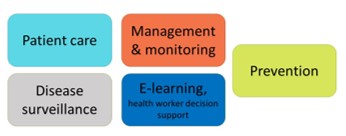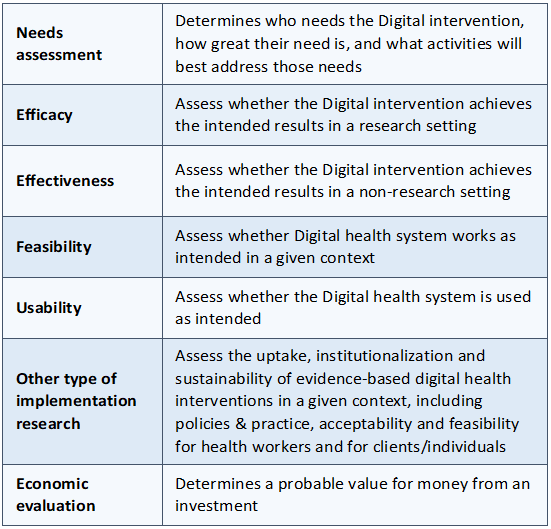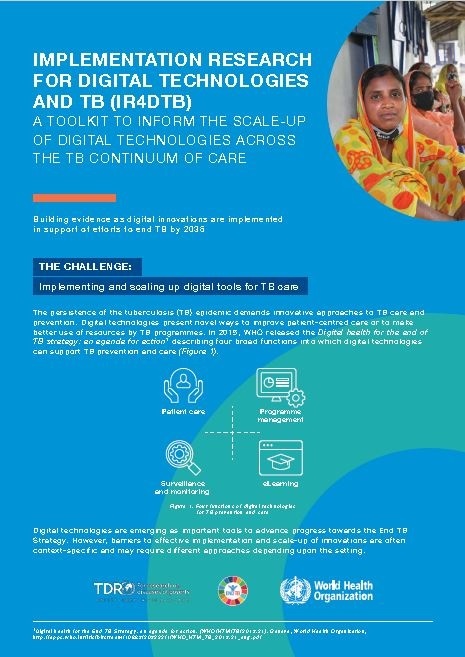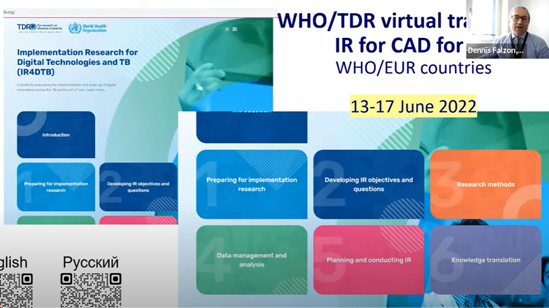
Digital health technology
At New Sokkham Temple in Vientiane, Dr Leutmany connects with the community to share COVID-19 prevention messages / eDEWS software being used on mobile device / Anthropological studies conducted in Monrovia for an effective intervention against Ebola.
Overview

Digital health solutions are needed to prevent, detect and respond to epidemics and pandemics and to promote health and well-being with the aim to achieve the health-related Sustainable Development Goals (SDGs).
Digital health technologies have different functions and can be used as solutions in the following five areas:






